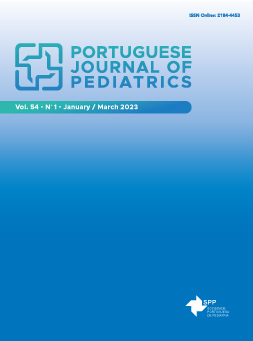Characterization of Young Child Health Surveillance in Portugal During the COVID-19 Pandemic
DOI:
https://doi.org/10.25754/pjp.2010.26876Abstract
Introduction: The COVID-19 pandemic has deeply influenced the primary healthcare system in Portugal. Knowing that the first two years of life are a period of major development, it is necessary to comply with all the standard moments of screening, surveillance, and immunization during this period. This study aimed to characterize health surveillance in the first two years and evaluate the fulfillment of guideline 008/2020 released on 26th March 2020 by Direção Geral da Saúde during the COVID- 19 pandemic.
Methods: This cross-sectional study was conducted based on the application of an anonymous questionnaire to caretakers of children under 24 months of age through social media. The data refers to the period of March 2020 to March 2021.
Results: This study included 452 children. The coverage of the newborn metabolic screening was 99.6%. Regarding vaccination, 81.9% of the children fulfilled the national program on time and 15.9% with delay. Around one third of the children experienced delay and/or cancelation of the routine consultations. In the group of children aged between 12-18 months (n = 150), 69.3% complied with the minimum of six consultations during the first year of life, while in the group aged between 18-24 months (n = 116), 72.4% complied with the minimum of one consultation during this period.
Conclusion: It is necessary to create strategies to improve compliance with the 008/2020 guideline, especially regarding immunization and consultations at the defined ages to optimize children’s health surveillance even during pandemics.
Downloads
Downloads
Published
Issue
Section
License

This work is licensed under a Creative Commons Attribution-NonCommercial-NoDerivatives 4.0 International License.









